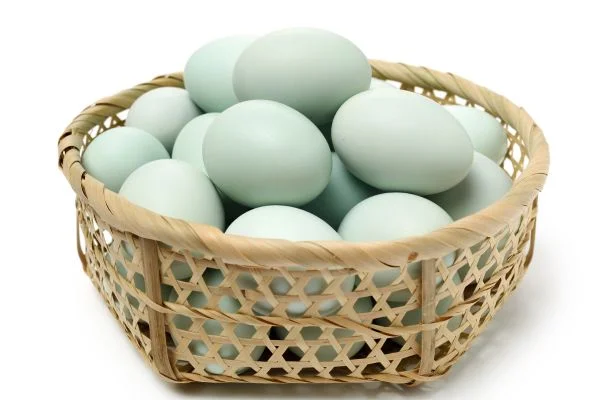Duck eggs have been used for centuries in cooking and baking due to their unique taste and nutritional benefits. They are richer in nutrients than chicken eggs and have a creamier texture, making them an ideal ingredient for baked goods.

Benefits of Using Duck Eggs in Baking
Before we dive into the various ways to bake with duck eggs, it’s essential to understand the benefits of using them in baking.
- Nutrient-dense: Duck eggs are a great source of protein, vitamins, and minerals, including vitamin B12, vitamin D, and selenium.
- Creamier texture: Duck eggs have a higher fat content than chicken eggs, giving them a creamier texture when used in baked goods.
- Better binding: Due to their larger size, duck eggs have a stronger binding capacity than chicken eggs, making them ideal for baked goods that require a firmer texture.
Baked Goods You Can Make with Duck Eggs
There are many ways to incorporate duck eggs into baked goods. Here are some of our favorites:
1. Cakes
Duck eggs are an excellent substitute for chicken eggs in cake recipes. Due to their higher fat content, they can produce a richer and more decadent cake. They also help cakes rise higher due to their stronger binding capacity.
2. Custards
Duck eggs can be used to make silky-smooth custards, such as crème brûlée or custard tarts. The custard made with duck eggs has a creamier and more luxurious texture than custards made with chicken eggs.
3. Breads
Duck eggs can also be used in bread recipes. They add moisture and a rich flavor to the bread, resulting in a more substantial and flavorful loaf.
4. Meringues
Meringues made with duck eggs are lighter and fluffier than those made with chicken eggs. The high fat content of duck eggs helps to stabilize the egg whites, making them ideal for meringue-based desserts like pavlovas and macarons.
5. Quiches
Duck eggs can be used in quiche recipes for a richer, creamier filling. Their larger size also means that fewer eggs are needed, resulting in a denser, more substantial quiche.
Tips for Baking with Duck Eggs
When using duck eggs in baking, there are a few things to keep in mind to ensure the best results:
- Size: Duck eggs are larger than chicken eggs, so make sure to adjust your recipes accordingly. One duck egg is roughly equivalent to one and a half chicken eggs.
- Freshness: As with any eggs, fresher is better. When baking with duck eggs, make sure to use eggs that are no more than a week old.
- Mixing: Due to their larger size, duck eggs take longer to mix thoroughly. Be sure to mix them well, so the ingredients are evenly distributed.
FAQs
Yes, duck eggs are safe to eat and are a popular ingredient in many cuisines worldwide.
While duck eggs can be used in most recipes that call for chicken eggs, it’s important to keep in mind that their larger size may require adjustments to the recipe.
Yes, you can use duck eggs to make scrambled eggs. However, their creamier texture may take some getting used to if you’re used to eating chicken eggs.
Duck eggs can usually be found at farmers’ markets, specialty grocery stores, and online. Make sure to buy them from a reputable source and check the freshness before using them in baking.
Duck eggs can last up to three weeks in the refrigerator when stored properly. It’s important to check the freshness before using them in baking to ensure the best results.
Conclusion
Duck eggs are a versatile and nutritious ingredient to use in baking. From cakes to custards to bread, their creamier texture and stronger binding capacity make them ideal for many baked goods.
Just remember to adjust your recipes accordingly, and you’ll be on your way to creating delicious and nutritious baked treats that are sure to impress.
